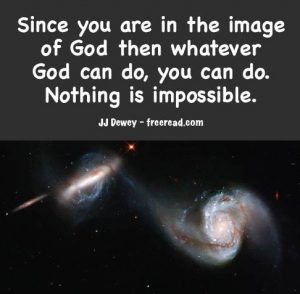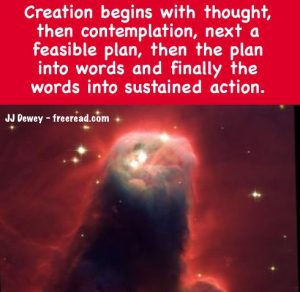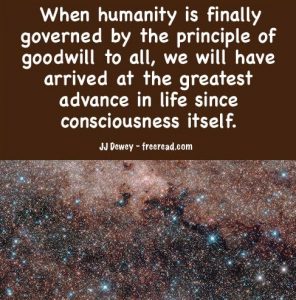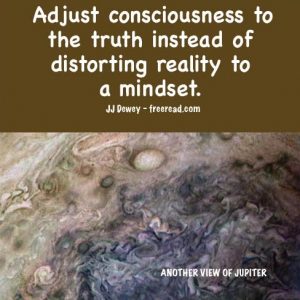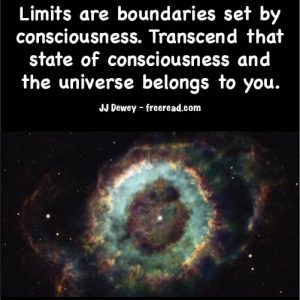
Dimensions of Freedom
I posted this meme a couple days ago which generated quite a bit of comment and questions.
“They who cannot feed, clothe and house themselves and loved ones are not free.”
This received a variety of response largely because people have different views of what freedom is. The odd thing about freedom is that everyone thinks they are for it. Hitler claimed he was fighting for freedom as did the American South who fought for freedom to own slaves. They saw slavery as a win-win. They thought the blacks were better off being slaves and the masters had more freedom because of their benefits from the slave labor. If you look far and wide you probably cannot find one person who will admit to being against freedom.
Therefore, when one speaks of freedom he should define the terms involved. As with all ideas both extremes do not work. Most realize that tyrannies where the populace is strictly controlled is not desirable.
But the other extreme is also not desirable, for a situation of anarchy evolves into tyranny. For instance, if the burglar has freedom to come into your home and take what he wants with impunity then his unchecked freedom diminishes the freedom for the whole.
The desirable point is what I call maximum freedom. This acknowledges that the more freedom we have as a society the better off we are and the goal is to create situations where laws, government, business and social activities are efficient so the maximum amount of freedom is had by all.
Now some think that maximum freedom would materialize if our government would just follow the Constitution and honor the Bill of Rights. That would certainly help as a number of rights are under assault, including the most important of all – free speech.
So yes, for maximum freedom the most just constitutional and civil laws are a prime ingredient.
So, does this mean that all who live under an idealistic legal system are enjoying maximum freedom?
Not quite.
Two other main items influence our freedom. The first is our own minds. Even more than government our own minds create prison walls for us. Hitler realized this when he said this:
“By the skillful and sustained use of propaganda, one can make a people see even heaven as hell or an extremely wretched life as paradise.”
Even so, one can live in a country with just laws and abundance, but if his mind is held captive to some outside authority that says life is bad for him he will not be able to enjoy the fruits of his society but will be held prisoner by his own adoptive belief system.
The mind above all things determine how much freedom we enjoy for all decisions we made in the past determine our circumstances today and decisions today affect the freedoms we will enjoy tomorrow.
The other thing that determines our freedom is our circumstances. That said we acknowledge that current circumstances are based on past decisions . This includes our unequal beginnings at birth for even this was determined by decisions and actions made in past lives.
Even so, it is a definite fact that some find themselves born into situations where more or less freedom is available.
For instance, one who is born blind is much more restricted in his freedom than one with good sight. One who is born with very strict parents has less freedom than liberal ones. One who is born in North Korea has much less freedom than someone in Switzerland.
In addition, our own mistakes or even what appears to be bad luck affects our freedom. Say a person runs a stop sign, has an accident and is a paraplegic for life. His dumb unintentional mistake stripped him of his most basic freedoms for life, even if he lives in the freest society on the planet.
Others make bad financial investments, get laid off their jobs or have problems that strip them of all their money and resources. They are often in the situation mentioned in my meme
“They who cannot feed, clothe and house themselves and loved ones are not free.”
It doesn’t matter if you are in the freest country on earth, or if the situation was your own fault or something else, this is a situation where maximum freedom is not possible – at least until the situation changes.
If you are extremely limited in funds you have limited freedom to buy food, clothing housing etc. Having enough material goods to sustain needs is a basic ingredient for maximum freedom.
Therefore, the lover of freedom will not only fight for good civil government but also to improve situations to benefit the less fortunate.
Now many feel that it is fine to take away freedom by force from those who have abundance to help those in need often even quoting Jesus on this idea.
But Jesus only advocated helping others through free will. He never advocated forcefully taking money from the rich to give to the poor but encouraged those with abundance to give though their own free will.
Even so, will true freedom lovers in this day do what they can through free will to help those who need assistance enjoy maximum freedom.
June 3, 2021
Copyright by J J Dewey
Easy Access to All the Writings
For Free Book go HERE and other books HERE
JJ’s Amazon page HERE
Gather with JJ on Facebook HERE
